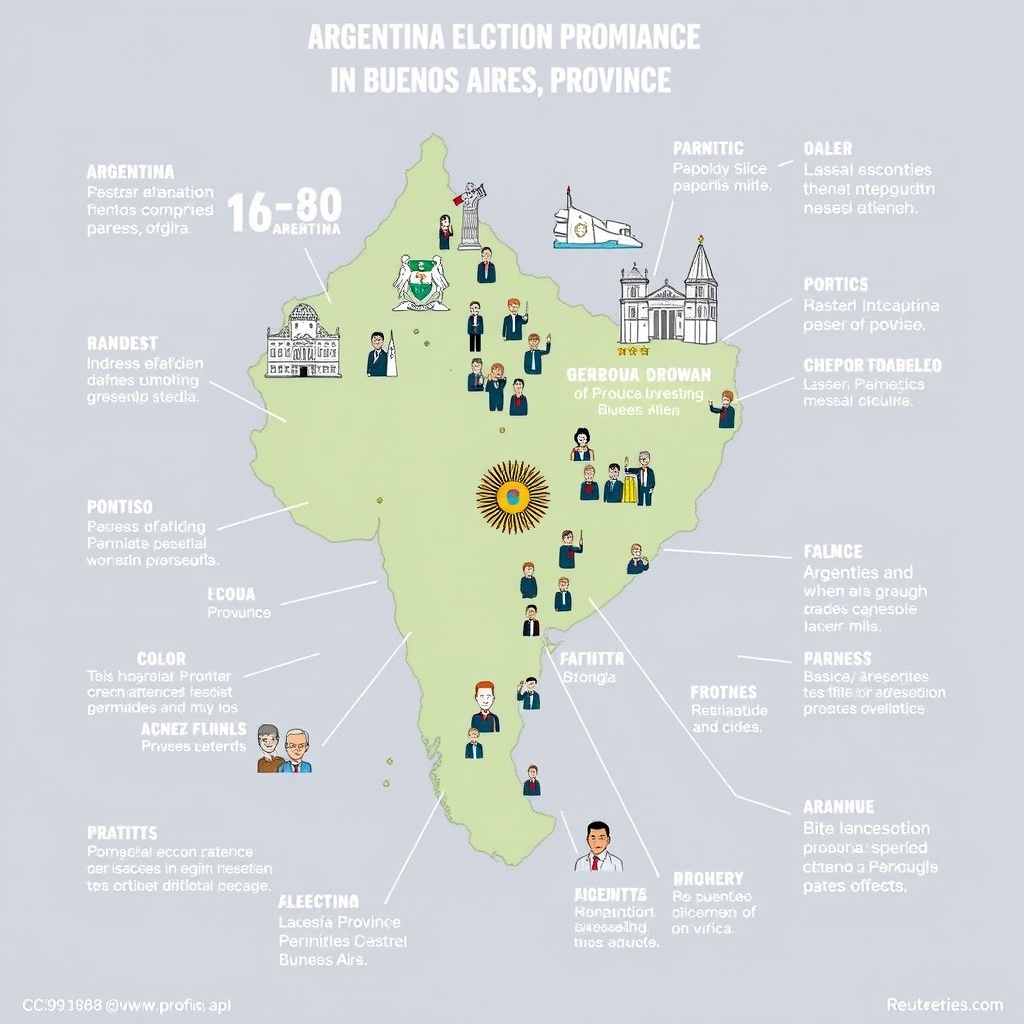Introduction
Argentina, a country known for its rich history, diverse culture, and passionate politics, has once again made headlines with a significant electoral victory for the opposition Peronist party in the Buenos Aires province. This win is particularly noteworthy as it comes at a time when the country is navigating through economic challenges and political shifts. The Peronist party's triumph in the legislative elections in the key province of Buenos Aires marks a significant moment in Argentine politics, potentially setting the stage for future national elections and the direction of the country. In this article, we will delve into the implications of this electoral victory, the current political landscape of Argentina, and what this might mean for the future of the country.
The Peronist Party and Its Significance
The Peronist party, rooted in the legacy of Juan Domingo Perón, has been a dominant force in Argentine politics for decades. Peronism is a political ideology that combines elements of socialism, nationalism, and populism, emphasizing social justice, workers' rights, and a strong role for the state in the economy. The party has a broad base of support, particularly among the working class and in the provinces. The Peronist party's victory in Buenos Aires, the most populous province and the economic heart of Argentina, is a testament to its enduring appeal and organizational strength.
The significance of this win cannot be overstated. Buenos Aires province is not only the most populous region but also a crucial electoral battleground. The province's legislative elections are often seen as a bellwether for national politics, indicating trends and sentiments that could influence future presidential and congressional elections. The Peronist party's success here suggests that it remains a formidable force in Argentine politics, capable of mobilizing support and challenging the current administration.
Current Political Landscape and Economic Challenges
Argentina is currently under the leadership of President Javier Milei, who represents a shift towards more libertarian and conservative policies. President Milei's administration has been focused on addressing Argentina's deep-seated economic issues, including high inflation, currency devaluation, and significant debt. However, the path to economic recovery is fraught with challenges, and the government's policies have been met with both support and criticism.
The Peronist party's victory in the Buenos Aires province legislative elections can be seen as a reflection of public sentiment regarding the current government's handling of economic and social issues. Many Argentinians continue to face economic hardship, and the Peronist party's emphasis on social welfare, employment, and state intervention in the economy may resonate with those seeking more immediate relief and protection from the market's fluctuations.
Implications for Future Elections and Governance
The outcome of the Buenos Aires province elections has significant implications for future political contests in Argentina. It suggests that the Peronist party is well-positioned to challenge the incumbent government in national elections, potentially altering the balance of power in Congress and setting the stage for a presidential contest.
Moreover, this victory could embolden the Peronist party to push for its legislative agenda, which might include policies aimed at reducing poverty, increasing employment, and expanding social services. Such initiatives could attract broad support, especially if they are perceived as addressing the immediate needs of the population.
However, the path forward is not without its challenges. The Peronist party will need to navigate the complexities of Argentine politics, including building alliances, managing internal factions, and responding to the criticisms of its opponents. The party must also demonstrate its ability to govern effectively, especially in the face of economic challenges that require nuanced and sustainable solutions.
Conclusion
The Peronist party's win in the Buenos Aires province legislative elections marks a pivotal moment in Argentine politics, signaling the party's resilience and its capacity to mobilize support in the country's most critical electoral battleground. As Argentina continues to navigate its economic and political challenges, the role of the Peronist party will be closely watched, both domestically and internationally.
The future of Argentine politics will depend on how the Peronist party chooses to leverage its victory, whether it can translate provincial success into national influence, and how it responds to the economic and social demands of the Argentine people. The election outcome also underscores the dynamic nature of Argentine democracy, where political forces ebb and flow, reflecting the diverse aspirations and frustrations of the population.
As the country moves forward, it will be essential for all political actors to engage in constructive dialogue, seeking solutions that address the deep-seated challenges facing Argentina. The Peronist party's victory is a reminder that, in democratic societies, the voice of the people is paramount, and political parties must be responsive to the needs and desires of their constituents.
In the context of Argentine history and politics, the recent election is a chapter in the ongoing story of a nation seeking to balance its economic aspirations with social justice, and its political stability with the passionate engagement of its citizens. The Peronist party's triumph in Buenos Aires province is a significant event, but it is also a precursor to the larger narrative of Argentina's political and economic evolution, a story that will continue to unfold in the months and years to come.


Leave a comment